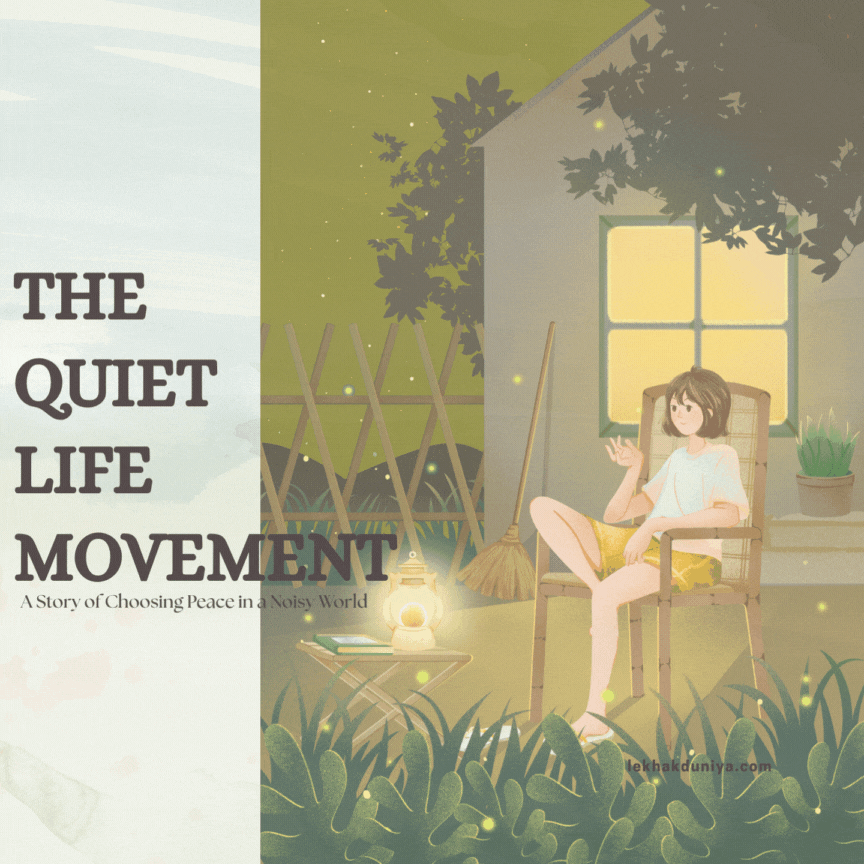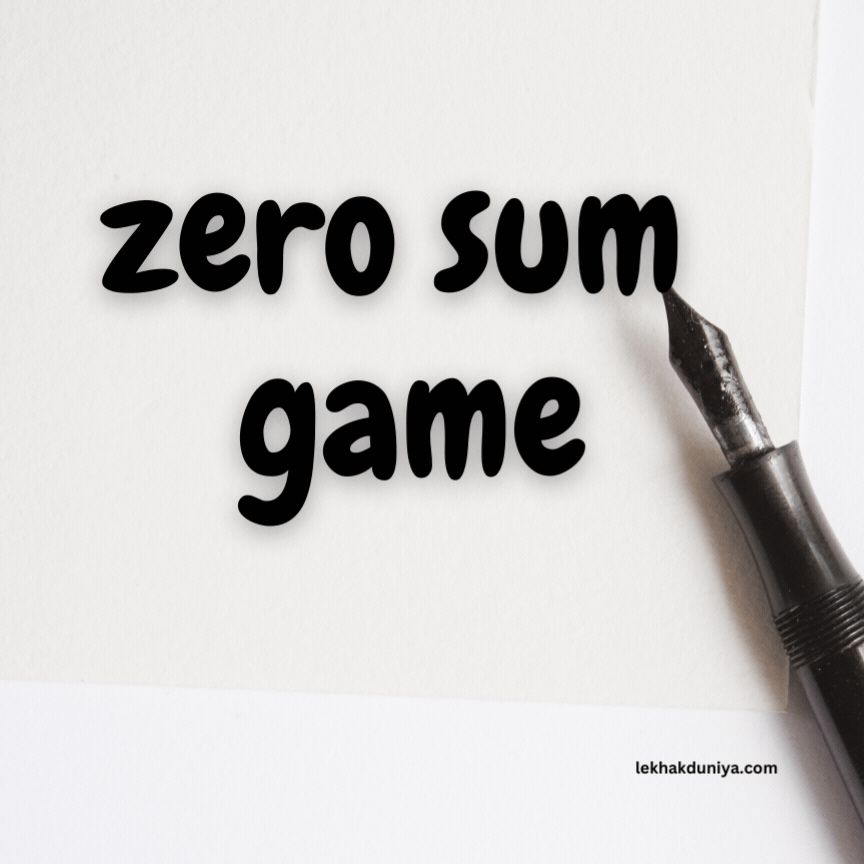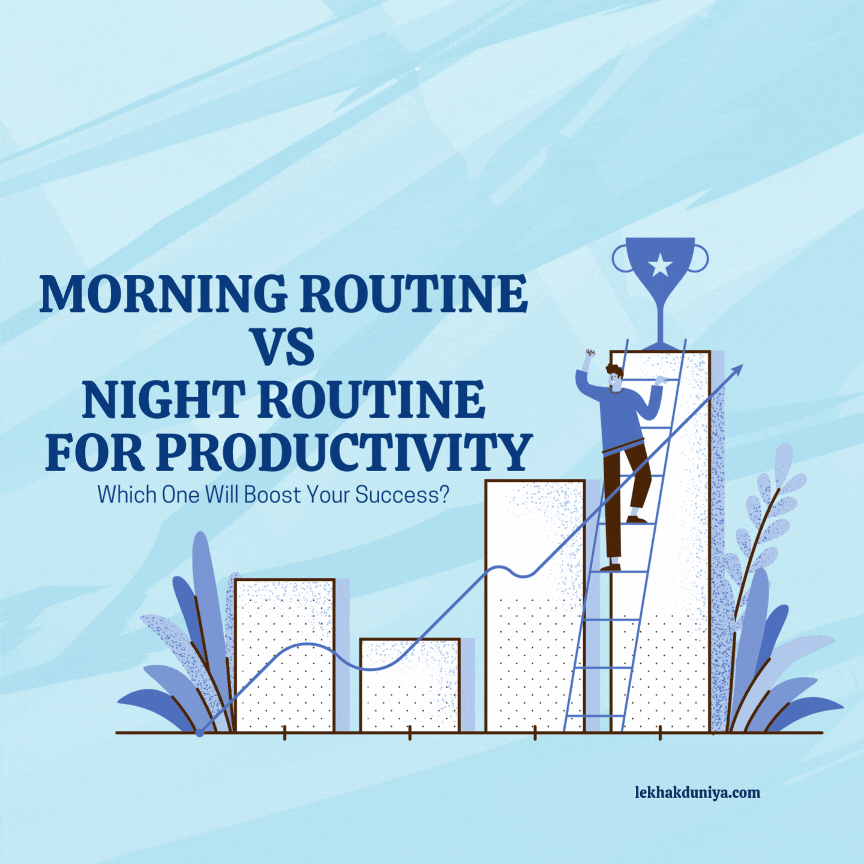The Quiet Life Movement: A Story of Choosing Peace in a Noisy World
Nammy had always believed she was good at handling pressure.
Deadlines, group chats, constant calls—she managed them all like a pro.
Until one humid Thursday afternoon, standing in line at a crowded café with her phone buzzing non-stop, she suddenly felt a wave of exhaustion she couldn’t explain.
Her boss wanted an update.
Her fitness app warned her about “breaking the streak.”
Instagram whispered that everyone else was living a better, prettier life.
When the barista asked for her order, she sighed and said something she didn’t plan on saying aloud:
“I just want a quiet life.”
The barista nodded gently, as if she had heard that same wish from countless others.
At that moment, Nammy realized she wasn’t alone.
The Night Everything Changed
That evening, something unusual happened.
Nammy reached home, dropped her bag, sat on her bed, and… turned her phone off.
Not silent.
Not DND.
Actually off.
Suddenly, the world slowed down.
She heard her own breathing.
She noticed the soft hum of her fan.
She felt present—truly present—after months of running on autopilot.
It felt like a forgotten luxury: quiet.
The Rise of the Quiet Life Movement
Nammy’s tiny act was part of a larger shift. Across bustling cities and quiet towns, more people are quietly stepping away from a life built on constant urgency.
This growing wave has a name:
The Quiet Life Movement.
It’s a lifestyle trend where people choose:
· Slow mornings instead of rushed alarms
· Minimal living over endless consumption
· Digital boundaries over constant notifications
· Real conversations instead of validation through likes
· Intentional living over chaotic multitasking
It’s not about escaping responsibilities.
It’s about escaping the noise that distracts us from who we really are.
Why Modern Life Makes Us Crave Quiet
For years, society has told us:
“Work harder.”
“Stay busy.”
“Keep hustling.”
“Be productive every second.”
But people like Nammy are discovering an unexpected truth:
Sometimes doing less helps you feel more alive.
Sometimes slowing down helps you move further.
Sometimes a pause speaks more clearly than all the chaos around us.
How Nammy Started Living Quietly
Nammy didn’t transform her life overnight. She made small, intentional shifts that slowly changed everything.
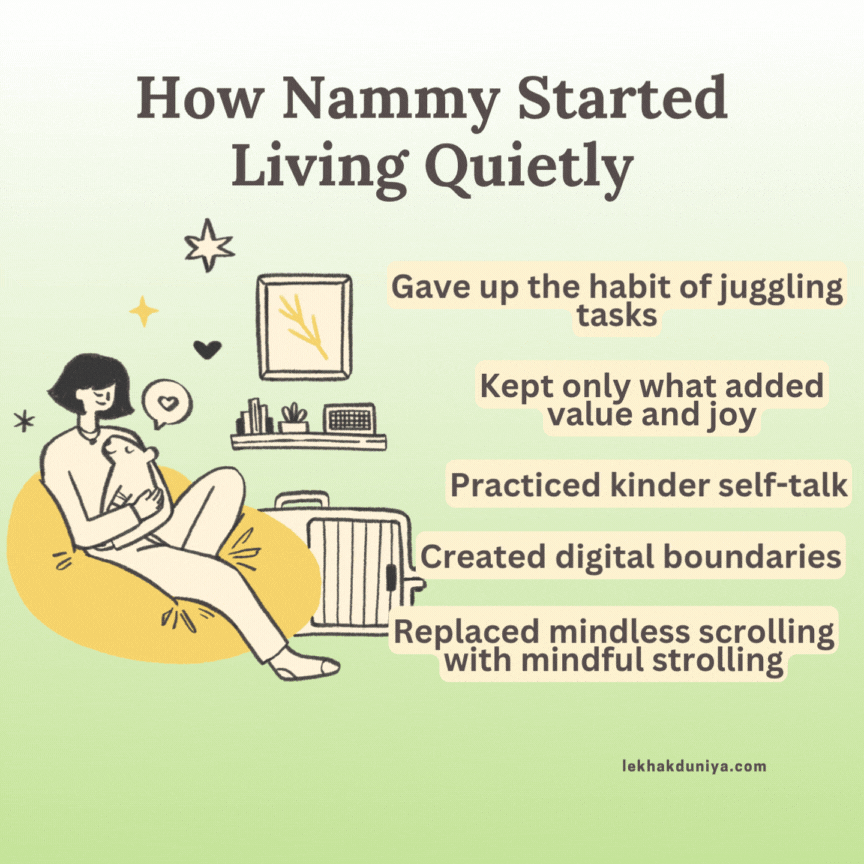 1. She gave up the habit of juggling tasks.
1. She gave up the habit of juggling tasks.
Instead, she allowed herself to finish one thing before moving to the next.
2. She decluttered her home and mind.
She kept only what added value and joy.
3. She created digital boundaries.
No phone after 8 PM.
Notification-free lunch breaks.
Guilt-free offline time.
4. She replaced mindless scrolling with mindful strolling.
Morning sunlight.
Short evening walks.
Moments of stillness without a screen.
5. She practiced kinder self-talk.
Not every moment had to be productive.
Not every dream had to be grand.
Not every day had to be perfect.
What She Found in the Quiet
She didn’t find magic.
She didn’t find instant transformation.
She found something more valuable:
Herself.
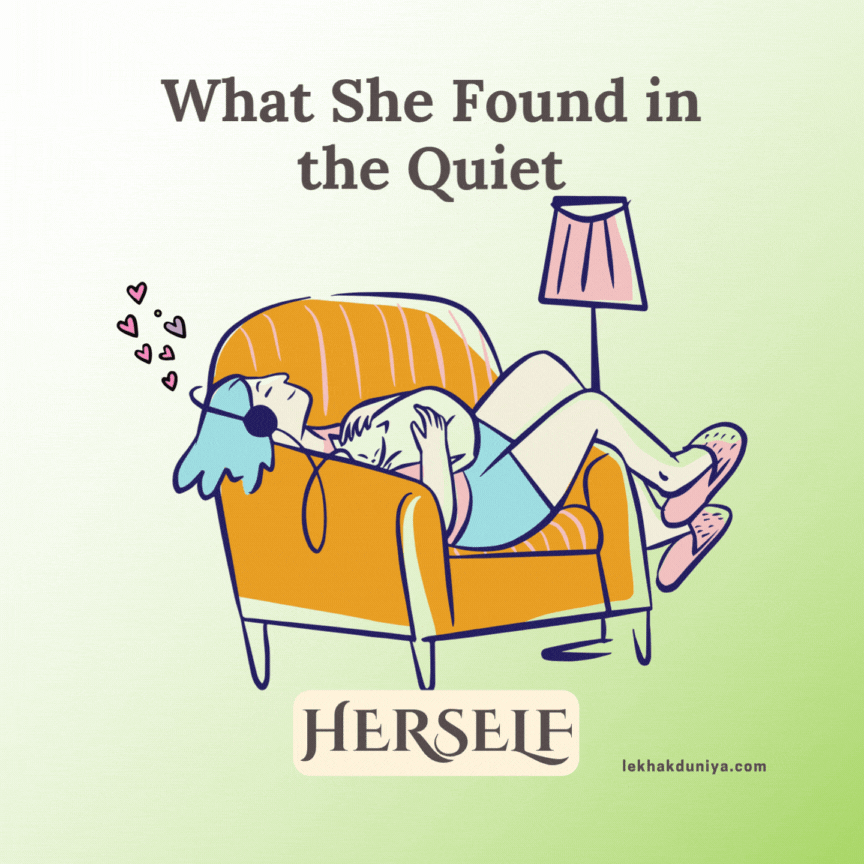 The version of her is buried under expectations, pressure, and constant comparison.
The version of her is buried under expectations, pressure, and constant comparison.
The version that breathes.
The version that rests.
The version that lives.
Is the Quiet Life Calling You Too?
Maybe you’re tired of always being available.
Maybe you’re overwhelmed by notifications, deadlines, or social pressure.
Maybe you want a life that feels soft, warm, and peaceful—like a cup of tea, not an energy drink.
If that sounds like you, start small:
Tonight, choose one quiet thing.
Turn off a device.
Take a slow walk.
Sit with your thoughts.
Say no to one unnecessary obligation.
Say yes to yourself.
The Quiet Life Movement isn’t about running away from the world.
It’s about finding peace within it.
Because sometimes, the bravest thing you can do in a noisy world…
is to choose a quiet life.
FAQ's
Q1. What is the Quiet Life Movement?
The Quiet Life Movement is a growing lifestyle shift in which people opt for slow living, intentional routines, and minimal digital noise to achieve peace and mental clarity.
Q2. Why is slow living becoming popular?
Modern life is extremely fast and chaotic. People are experiencing burnout, information overload, and emotional fatigue. Slow living helps restore balance and reduces stress.
Q3. How can I start living a quiet life?
Begin with small habits: reduce screen time, simplify your routines, declutter your environment, spend more time in nature, and protect your mental peace.
Q4. Is the quiet life about avoiding responsibilities?
Not at all. It’s about prioritizing what truly matters and removing unnecessary noise, pressure, and digital distractions.
Q5. Can slow living improve mental health?
Yes. Research shows that slower routines, boundaries, and mindful living reduce anxiety, improve sleep quality, and enhance emotional well-being.
